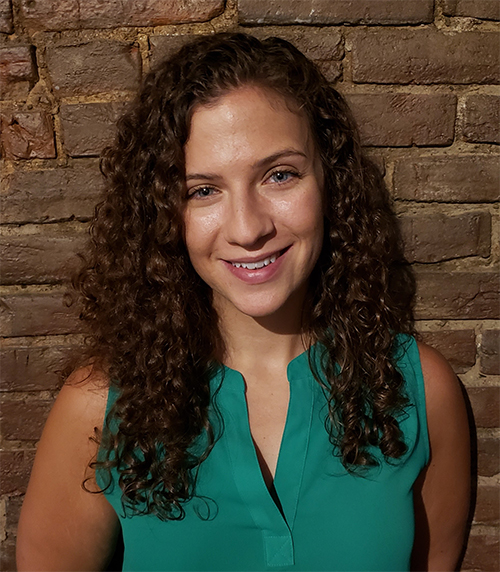Meet Assistant Research Professor of Criminology and Justice Studies Kathleen Powell, PhD
November 11, 2021
Kathleen Powell, PhD, is an assistant research professor in the Department of Criminology and Justice Studies, with a joint affiliation with the Center for Public Policy. Broadly, her research examines the various impacts of involvement with the juvenile and criminal justice systems.
She focuses on identifying person-level outcomes of being arrested, on community supervision or incarcerated. Using both quantitative and qualitative methods, her research is often grounded in the life course paradigm and/or the social stress process. Her recent scholarship includes an investigation of age-based variation in mental health following justice system involvement that highlighted the concentrated adverse consequences of incarceration during late adolescence and the transition to adulthood for individuals’ depression and anxiety. Similar papers include a study of occupational stress among public defenders and inequality in earnings following arrest and incarceration in early adulthood. Recently, her research agenda has expanded to include applied projects tackling issues of central importance to criminal justice policy in Philadelphia and throughout Pennsylvania.

Degree: PhD, Criminal Justice, Rutgers University
Research Interests: Juvenile Delinquency and Justice; Crime and the Life Course; Corrections, Punishment, and Inequality; Courts and the Legal Profession; Criminal and Juvenile Justice Policy; Research Methods
Hometown: Cherry Hill, NJ
What is your favorite thing about Philadelphia?
This is a very tough question, because I love so many things about Philadelphia. There’s just so much to eat, see and do right in my backyard. I’d have to say my favorite is the food scene: the quality, creativity, diversity and approachability of the dining scene here is just amazing. There’s always something new and exciting to try. As a lifelong Eagles fan, a close second is the sports culture.
When was the last time you did something “for the first time”? What was it?
I imagine this is a relatable story, but in an effort to get out of the house and into new scenery, I tried camping for the first time in the early summer of 2020. I thought I would hate it and come home early – to my surprise, I loved the calmness and serenity of the experience of being in nature and away from the hecticness of city life. It’s so relaxing and refreshing to sit around a campfire and reconnect with friends and family absent distractions from our phones. I’ve been on several trips since and look forward to more!
What would students be surprised to learn about you?
I write and eat with my left hand, but I do almost everything else with my right hand/right side. I refer to myself as “somewhat ambidextrous.”
What did you want to be when you were a kid? What made you want to become a professor?
I didn’t grow up having aspirations to go to graduate school and pursue a PhD in criminology. While I was always fascinated by the law, I had several other career ideas growing up, such as becoming a veterinarian or a paleontologist. I eventually went to college with the intention of going to law school and working in criminal law as a prosecutor or public defender. I did a research fellowship as an undergraduate criminology student, and quickly realized that a research career in this discipline was the path for me. Fast forward through eight years of graduate studies, and I’ve made it. This career is challenging but immensely rewarding, but I love that I get to learn and teach for a living.
What was an impactful moment from your own college career?
As an undergraduate student, I took a course that enrolled students from my campus and students incarcerated at a local correctional facility. It was truly transformative. Through conversations and class discussion, I learned so much from my peers about punishment and inequality that I never would have if I had taken a different class taught on campus. This class inspired me to pursue policy-relevant research that could shed light on ways to improve the criminal justice system, especially the lives of those experiencing incarceration. This experience continues to motivate my research and teaching to this day.
Which current event/issue do you think students should know more about, and why?
Mass incarceration can be conceptualized and dissected from multiple angles, but I’d love to see it discussed more frequently as a public health problem. Going to jail or prison (or really, any level of involvement with the justice system) is a really stressful and disruptive experience for the person incarcerated and anyone in their close network – children, spouses and other dependents. Prisons are unhealthy and unsafe environments, a reality made even clearer by the COVID-19 pandemic. Lots of research, including my own, documents that people tend to leave prisons and jails with worse mental and physical health as compared to when they entered. I’d love to see a more systematic discussion of correctional policy from a health and harm reduction perspective to acknowledge the substantial toll of incarceration on the wellbeing of these individuals, their families and their communities.
What do you consider to be your biggest achievement thus far in your career?
Publishing my dissertation research. Writing a dissertation is a monumental task; getting the research findings published in a peer-reviewed scholarly outlet – an expectation in my discipline – is a different but similarly daunting task. It took an additional two years of peer review, rejection, and revision after graduate school to get there, but earlier this year, I had a paper featuring my dissertation’s central findings accepted for publication in a highly regarded outlet in my field. I’m so proud of this scholarship and the effort it took to get it to this outcome.